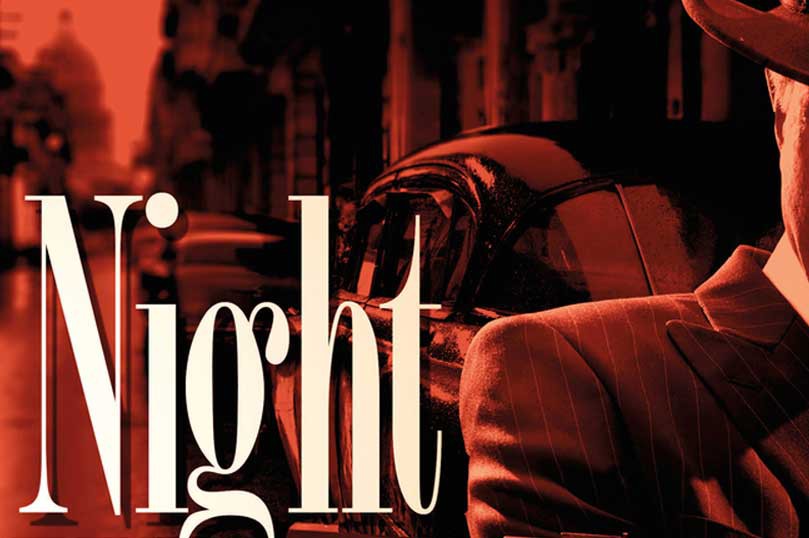Written by David C. Taylor
I grew up in New York City in the 1950’s at the height of the Cold War. This was the New York of my novel, opens in a new windowNight Life (Nominee for Best Novel for the 2016 Edgar Awards), and this year’s opens in a new windowNight Work. The Communist bloc was bent on our destruction, and everyone knew the Cold War could go hot at any moment. The idea that the whole world could blow up in minutes was always present. But at school we were going to be okay, the adults told us, because they had a strategy that was going to save our lives in the event of a nuclear attack: DUCK AND COVER. When the air raid sirens sounded, we were to get down under our desks and cross our arms over our faces, and we were commanded to NEVER LOOK AT THE WINDOW. We would be blinded by the flash, we were told. Blinded by the flash?! Even the dimmest kid in school understood that if the Commies dropped an atom bomb on Central park, the accepted ground zero, we, in a school three blocks away, no matter how strong our desks, were going to be turned into cosmic snot. Not look at the window?! If the choice for a last sight in life was the crook of your elbow or a bright, white light, everyone was going to look at the window.
What I took away from that was a disappointed understanding that the adults who lead us often have no real clue, or they are not telling us the truth. We often allow ourselves to be led by the power hungry, the self-serving, the narrow minded, the unimaginative. The protagonist of the Night Life and Night Work, the New York cop Michael Cassidy, runs up against Senator Joe McCarthy, Roy Cohn, J. Edgar Hoover, agents for the CIA and the FBI, Fidel Castro, and KGB operatives, and he discovers they all have a common trait. They promote fear to gain power, and once they have the power, they use it to promote more power. They often wrap their campaigns in idealism, but the idealism soon disappears. Cassidy is not a cynic, but rather is a romantic pragmatist. He sees the world around him as it is, yet he has a deep need for it to be the better place he knows it can be. He knows that power tends to corrupt, but he is hopeful that it will not. He became a cop, I think, as an antidote to cynicism.
In writing historical fiction like Night Life and Night Work, about the not-too-distant 1950’s, one can hold up a mirror to the present. It’s a bit like a funhouse mirror, distorted in its image, but it does remind us that the human weaknesses that bent our leaders then are present in our leaders now. Our enemies were real then, and they are real now, but the responses proposed are often shortsighted, incomplete, designed for immediate political gain more than for long lasting solutions.
George Santanaya, the Spanish born philosopher and poet, said, “Those who cannot remember the past are condemned to repeat it.”
Here we go again. Duck and cover.
Buy Night Work today:
opens in a new windowAmazon | opens in a new windowBarnes & Noble | opens in a new windowBooks-a-Million | opens in a new windowiBooks | opens in a new windowIndiebound | opens in a new windowPowell’s











